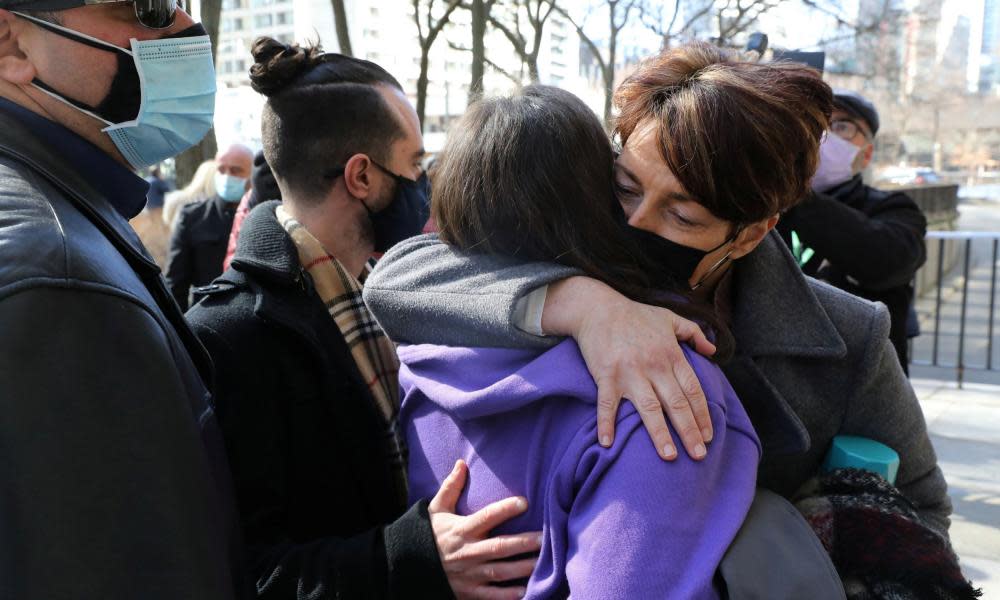‘Incel’ who killed 11 in Toronto van murders sentenced to life in prison

A self-described “incel” who killed 11 people when he plowed a rented van into a busy Toronto sidewalk in 2018 has been sentenced to life in prison.
Alek Minassian – who was motivated by a hatred of women – was convicted in March of 10 counts of first-degree murder and 16 counts of attempted murder, after a judge found that he drove a white rental van on to the sidewalk with the intent to kill.
At a hearing on Monday, he was sentenced to 20 years for 15 counts of attempted murder, which are to be served concurrently.
Related: Toronto van attack suspect says he was ‘radicalized’ online by ‘incels’
Earlier, the Toronto court heard testimony from witnesses and victims, who recounted the horror of the attack, and their struggles with PTSD in the aftermath.
“My world has changed forever,” said Janet Zhang, after describing the mental suffering she still experiences after her CPR efforts to save a victim were unsuccessful.
First responder Charlene Mackay told the court that she still has panic-inducing triggers and night terrors, which she manages by drinking and not eating well. “I don’t feel like he should have a normal life,” she said of Minassian.
Other victims detailed the extensive and life-altering injuries they incurred during the attack, with which they continue to grapple.
Minassian’s actions took the lives of Renuka Amarasingha, Betty Forsyth, Ji Hun Kim, Dorothy Sewell, Anne Marie D’Amico, So He Chung, Andrea Bradden, Chul Min “Eddie” Kang, Geraldine Brady and Munir Najjar.
An 11th person – Amaresh Tesfamariam – died of her injuries in October last year, and Justice Anne Malloy said on Monday she considered the woman the 11th victim.
The Crown asked that Minassian be given 10 life sentences – to be served concurrently – with parole eligibility after 25 years.
The sentencing recommendation came after last month’s supreme court of Canada decision, which found that consecutive periods of parole ineligibility were unconstitutional and should be seen as cruel and unusual punishment.
That decision was rendered after a court challenge by Alexandre Bissonnette, the man convicted of six murders and six attempted murders in the 2017 Quebec City mosque shooting.
In his original sentencing, Bissonnette’s parole ineligibility terms were added up consecutively, totalling 40 years.
After the May 2022 supreme court decision, he now qualifies to apply for parole after 25 years. Based on that decision, so will Minassian.
• This article was amended on 14 June 2022. Bissonette’s original parole ineligibility terms totalled 40 years, not 150 as an earlier version said. And after 25 years he and Minassian qualify to apply for parole; they do not qualify for it automatically.

